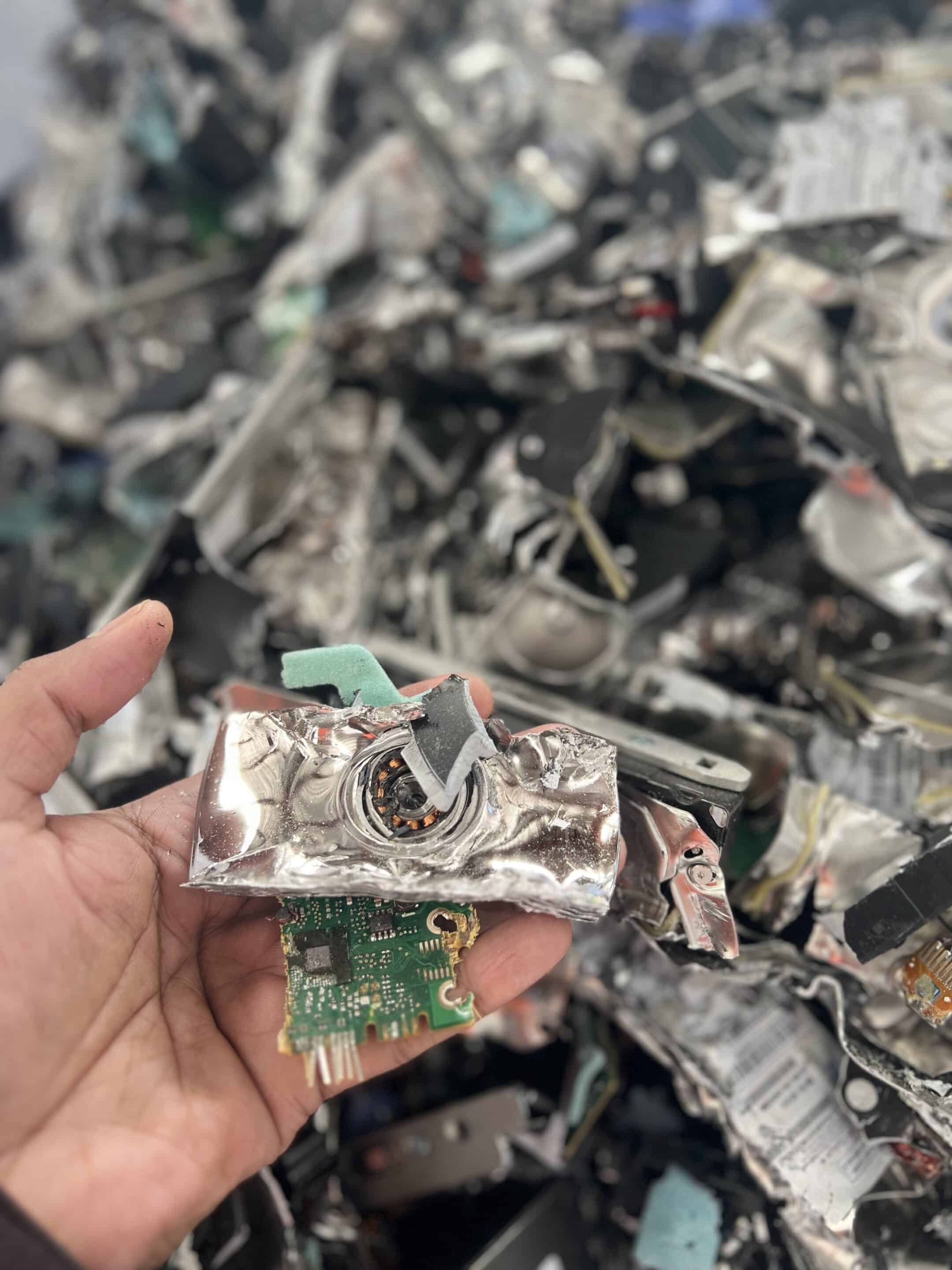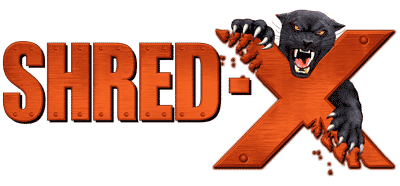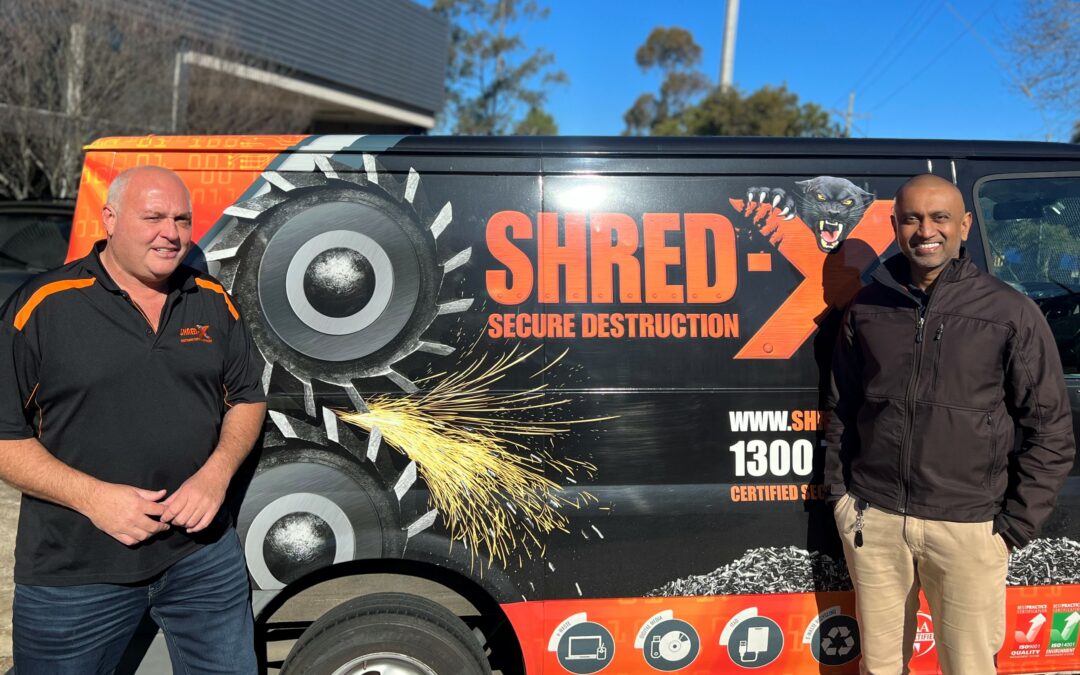Hard drives, USB sticks, even PlayStations can hold all sorts of secrets – anything from spreadsheets and salaries, through to 10-year plans aimed at getting ahead of the competition. Over time, these devices, for a variety of reasons, reach their end of life and they just can’t be thrown away, or even recycled by traditional means. They need to be disposed of in a way owners can be assured that their personal sensitive information will never be revealed.
Over the past decade there have been many stories in the mainstream press about data breaches. These breaches could not only have put a client’s private information in the hands of its industry rivals, but also harmed the reputation of their business.
Back in the day, making sure nobody got their hands on sensitive hard drive information entailed drilling a hole in said hard drive, or physically destroying each drive with some form of mechanical assistance. And while that is still the preferred method of some, talking to Steven Batumalay and Dave Rogers from secure destruction specialist Shred-X, people are making a whole lot of unnecessary work for themselves.
As the name of their company infers, shredding or disintegration is the most effective and bulletproof way of making sure a hard drive doesn’t give up any of its secrets. This is just one of the services that the company offers the industry.
Shred-X began as a paper recycler and started down the data destruction road just over a decade ago. The company also got into the business of repurposing and/or destroying hard drives and e-Waste assets. A lot of the work must be done manually due to the sensitive nature of what can be on the devices, but also it is the only practical way to separate the various components.
“So, with a desktop computer, the plastic will go to plastic recycling, the metal to a metal recycler,” said Rogers, who is Shred-X’s National E-Destruction and Repurposing Manager. “Inside the unit, the green boards usually end up in Japan in a smelter and other commodities are recycled through Australian local approved partners.
“We started to work with partners for our downstream recycling, which means we would take the asset, remove the disk and destroy it, and then give the remainder of the units to an approved downstream recycler. Steven operated his own e-Waste recycling and ITAD business, which was one of our recycling partners operating from within our Sydney facility for a few years. That relationship grew, then over a couple of years we acquired him and his business. That’s how some of our growth occurred.”
Batumalay, Shred-X’s ITAD Solutions and Relationship Manager, started out with his own company, RCube Solutions, which specialised in decreasing data theft and reducing the amount of e-Waste going to landfill. When Shred-X bought his company, he found that while he liked the agility of what a smaller business can do, the economy of scale means he is working for a company that has a much bigger footprint throughout the country. And there is a lot of work to do as their niche part of the industry is set to expand.
“A few years ago, this was a $20 billion industry,” he said. “The last forecast I heard is that it is set to double in the next 10 years. Everything is electronic these days. The big thing at the moment is the Internet of Things, which necessitates a lot of electronic devices. We do data erasure, and physical destruction. We also do buyback and selling equipment and that sort of thing. We’re recycling, we’re breaking things down to the component level to become a commodity.
“Shred-X has been one of the fastest growing companies in the e-Waste and secure data destruction industry. It’s been making the right technology and resource investments to service clients with a focus on providing sustainable and environmentally friendly solutions.”
Due to data breaches, a lot of companies are adopting General Data Protection Regulation (GDPR) designed to safeguard personal information and data. Despite extra vigilance surrounding security, redundant IT equipment can hold the aforementioned data that can compromise individuals, a business, its customers or employees, which is why Shred-X and its capabilities are becoming essential in today’s environment.

Shredding sensitive hardware is becoming popular as data breaches become more prevalent.
A lot of the work is manual separation. In this day and age of automated MRFs, is it worth it in the long run in terms of making a dollar? Absolutely, according to Rogers who is passionate about the e-Waste industry.
“There’re a few companies in the US where the volumes that they do in a week, we do in a year. They’ve got massive plants that probably have 40 or 50 people working in one line along with robotics and automation. They’re pretty amazing, but you need volume for the investment.”
Shred-X knows the importance of making sure data is erased properly and responsibly. Batumalay said that the key to the company’s success is that it has been able to satisfy customers that their data is not only being destroyed, but in a safe, ethical and sustainable manner. Convincing some of his clients on the best way forward can sometimes be hard to do, due to them being stuck in the old ways of doing things, as options and technology of processing equipment evolves.
“We need to educate our customers on how that has been done,” he said. “Some organisations seem to be still using manuals on how to destroy data that were written 20 years ago, and they want to stick by it. They don’t see the change in the industry and technology, even though they understand that things have changed.”
For example, he said some of its overseas customers, such as large banks, still believe in drilling a hole through a hard drive.
“Interestingly, we have a few customers at the moment who are well aware of the Morgan Stanley breach a few years ago,” said Rogers. “So, it’s very surprising that they still drill those hard drives because shredding is much more secure and thorough. We can now just put it through a shredder – it just takes a few seconds, and they’ll be shredded down to minute particles.”
E-Waste is a global problem and is only set to become more of an issue as the use of electronic devices starts to increase. Batumalay said e-Waste is the fastest growing waste industry not only in Australia but globally, which means there is more investment from local and international businesses and government. But there are still tweaks needed here and there. The National Television and Computer Recycling Scheme (NTCRS) is one example, he said.
“It says television and computer recycling in its name, and we get paid by the government for every kilogram of electronic waste that we recycle from that scheme,” he said. “We report our figures back to the scheme. The problem is some types of electronic waste are not part of that scheme. For example, you may want to recycle an old VHS video recorder, which has a lot of electronic components. But it’s not in the scheme. That means if you are someone who recycles thousands of them, you can’t report that into the scheme to get money back from the government, even although it’s still electronic waste. The scheme has some challenges and there is a lot of room to improve when compared to the US or Europe.”
According to Batumalay, the company’s e-Waste solutions deliver a compliant, sustainable solution to end-of-life asset management plans and can also be integrated into a business’s corporate social responsibility project.
“We promote a circular economy, providing environmental sustainability and financial benefits to business, that’s our purpose,” he said.
Editorial: Inside Waste (Aug / Sep 2023 Issue)

